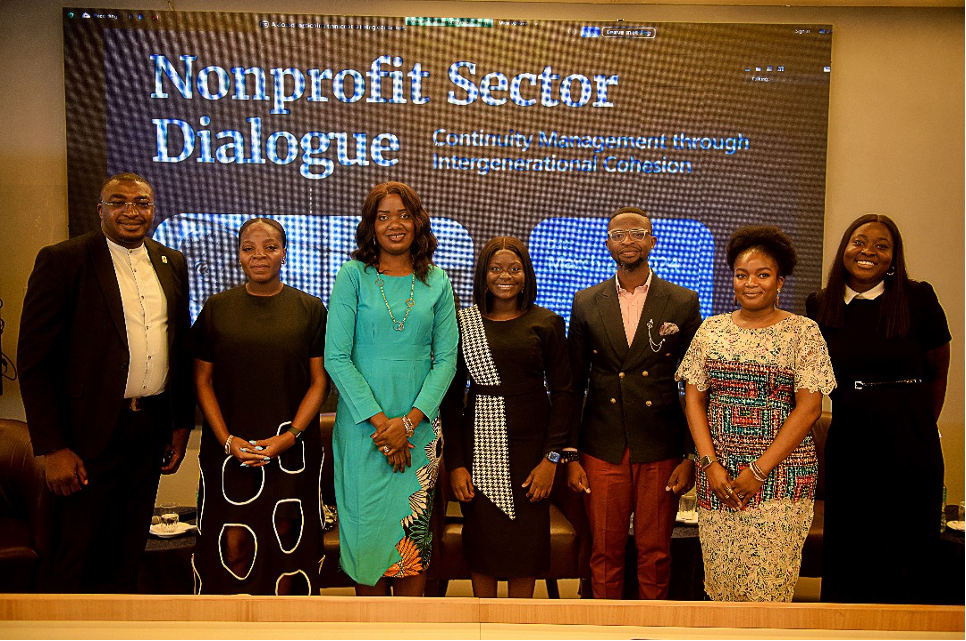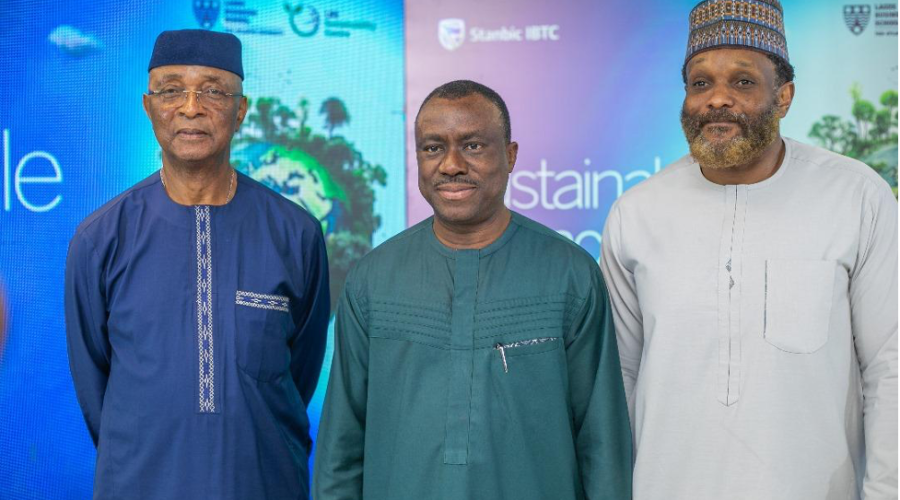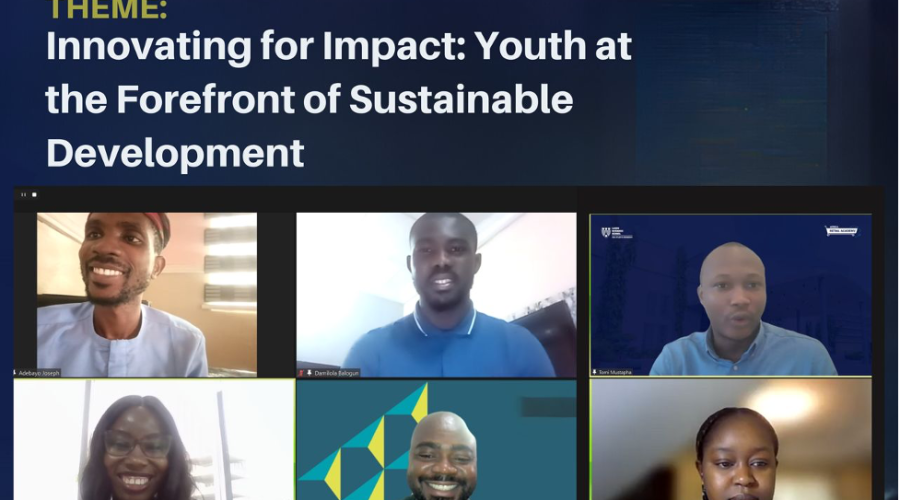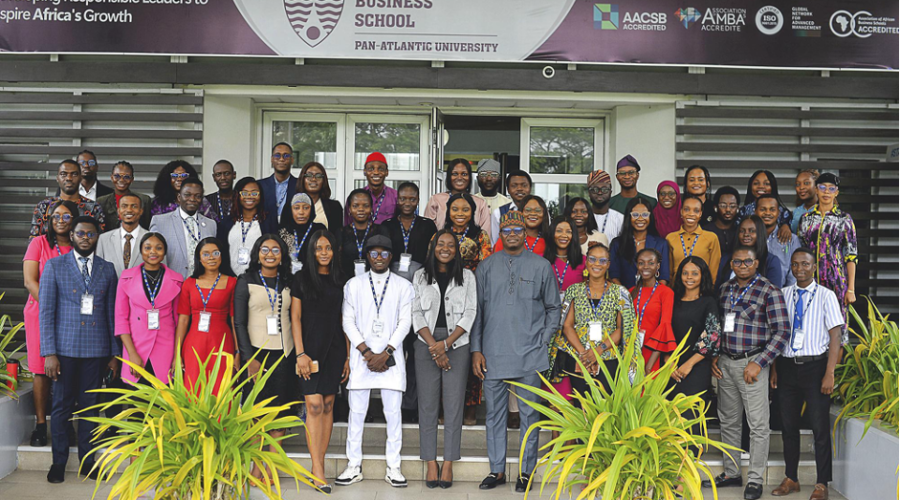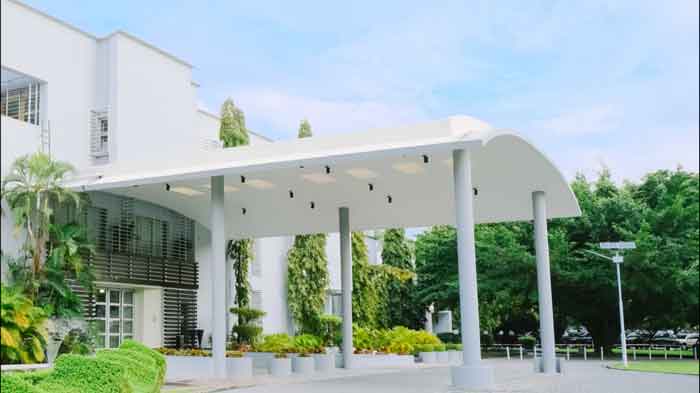The LBS Sustainability Centre’s Nonprofit Leadership and Management (NPLM) Youth Academy hosted the Nonprofit Sector Intergenerational Dialogue themed ‘Continuity Management Through Intergenerational Cohesion on Thursday, March 28, 2024. The dialogue was a cross-generational engagement to prompt conversation around the factors and enablers of intergenerational cohesion and succession planning that guarantee long-term organisational success and sustainability among Nigerian nonprofit organisations (NGOs, CSOs and Foundations).
Prof Uchenna Uzo, Faculty Director, Lagos Business School in his opening remarks said, “Succession planning was very important and there are different models to note when considering succession planning. We all have a great opportunity to learn from people who have transferred business from one person to another. At LBS, we have been beneficiaries of succession planning, with all the Past Deans working closely with their successors. This calls for intentionality in our growth so we can make an impact.”
Delivering the keynote on ‘Leadership Continuity Through Intergenerational Cohesion,’ Joseph Jaiyeola, former CEO, Nigeria Economic Summit Group (NESG) and Chancellor, Hillside University of Science and Technology indicated the questions nonprofits must pose to themselves and the inputs organisations must make to foster intergenerational cohesion and succession planning. “The first is are you really set up for continuity as an NGO? If you are set up to be a continuing NGO, we can then talk about building leadership, and then ask who are you? Who really are you? What’s your purpose? The second question NGOs must ask themselves is how do intergenerational differences affect organisations? Each generation has unique characteristics that define them. It affects how they work, communicates, and how to interpret things. To what extent are you as an NGO taking the generations into account?”

He continued, “The third question NGOs must pose to themselves is how do you curate inter-generational cohesion in your organisation. It is important for you to create a stable and safe environment for everyone to share their ideas. You have to be intentional about it. He do we ensure that we put the young people in touch with the older ones? You have to be deliberate. You must build a culture that is inclusive and encourages it. Deliberately do trainings to enhance manpower. Personal development is important. If someone is doing well, encourage them, promote them, put them on projects, etc. You then gradually take a back seat. Let them shine but remember that you can delegate but you cannot abdicate. You give them the credit but take the blame.”
The panel discussion comprising seasoned nonprofit professionals spoke on ‘Resolving the Leadership Continuity Dilemma in Building Resilient NGOs.’ The panellists were Dr Joseph Onoja, Director General, Nigeria Conservation Foundation (NCF); Folawe Omikunle, Chief Executive Officer, Teach For Nigeria; Aramide Kayode, Founder, Talent Mine Academy; Olumide Ojeleye, Country President, QS Impact; and moderated by Oreoluwa Amorighoye, NPLM Youth Academy Alumni.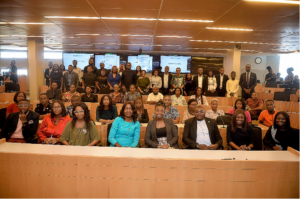
They hinted that if you start up an NGO to make a profit you will have problems. Realistically, it is named non-profit but it needs revenue and financial management to succeed. When you chase money you lose focus. When you chase value, money will come later. Other people who value purpose will then continue the dream for generations. Follow value, and money will come, when you follow money, you will lose value and money. They emphasised prioritising the organisation’s mission over chasing grants. This means ensuring your organisation’s core values are deeply embedded in the work you do. When you focus on creating value and solving problems with integrity, you attract resources and grants from funders who share your vision.
A clear vision, purpose, and approach to solving problems are crucial for attracting committed staff, inspiring them, and planning for future leadership. When everyone in the organisation understands the ‘why’ behind your work and how you approach your mission, it becomes easier to identify individuals who share your values and can contribute meaningfully to the organisation’s goals. This clarity also helps in identifying the skills and qualities needed in future leaders. Once the organisation’s history and values are embedded in your culture and communicated effectively to staff, it creates a sense of shared identity and purpose within the organisation. Regularly communicating the organisation’s history and values helps new staff members understand the foundation on which the organisation is built and how their work contributes to the bigger picture.
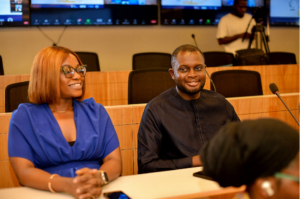
An interactive session also spotlighted the need for mentorship programmes. Mentorship programmes provide guidance and support, helping mentees develop the skills and experience needed to take on leadership roles. By bringing in individuals who are eager to learn and grow, you build a talent pool from which future leaders can emerge. There has to be a strategy for succession for NGOs and a clarity of purpose, many times passed from one generation of leaders to the next.
A case in point is Teach For Nigeria where the vision, purpose and the why were passed down from the founders to the successors. A well-defined succession plan goes beyond simply finding a replacement leader. It ensures the organisation’s mission and vision are not only preserved but actively carried forward. Talent Mine Academy has been training the children they work with to be able to take over the organisation. They have different pathways to onboard the children. The children involved are tied to the cause and are ready and willing to aid other children who were out of school like they were in the past. This creates a sense of continuity and allows the NGO to build on its existing successes, maximising its impact in the long run.
While gender and tribal biases can hinder smooth transitions, technology can enable transitions and cohesion. Technology can be a powerful bridge between generations. Utilising online collaboration platforms, knowledge-sharing databases, and communication tools can facilitate teamwork and knowledge transfer, regardless of location or age. Organisations need to actively promote inclusivity by creating a meritocratic environment where opportunities are awarded based on skills and qualifications, not age, gender, or ethnicity.
Most importantly, to enable succession planning and intergenerational cohesion, the triple indicators of being intentional, being adaptable, and being ready at all times, is known to pedestal professionals and organisations looking to foster growth and create impact in their organisations, communities and societies. The challenge to the younger generation is preparation and readiness. Conversely, the challenge to the older generation is adaptability. Thus, nonprofits are advised to think like for profit organisations by adopting their systems and modes of operations, have documentation about their processes, desist from building around individuals or founders, but build to last at least four generations and be adaptable and open to change.
Lagos Business School is Africa’s leading management education institution and the LBS Sustainability Centre is a globally recognised knowledge hub that brings together the theory and practice on business and sustainability for the advancement of business performance and development outcomes. For more information about the initiatives and upcoming events by the Lagos Business School Sustainability Centre, please contact sustainabilitycentre@lbs.edu.ng. Together we can work towards a sustainable future for businesses on the continent. See our programmes at https://lbssustainabilitycentre.edu.ng/training

